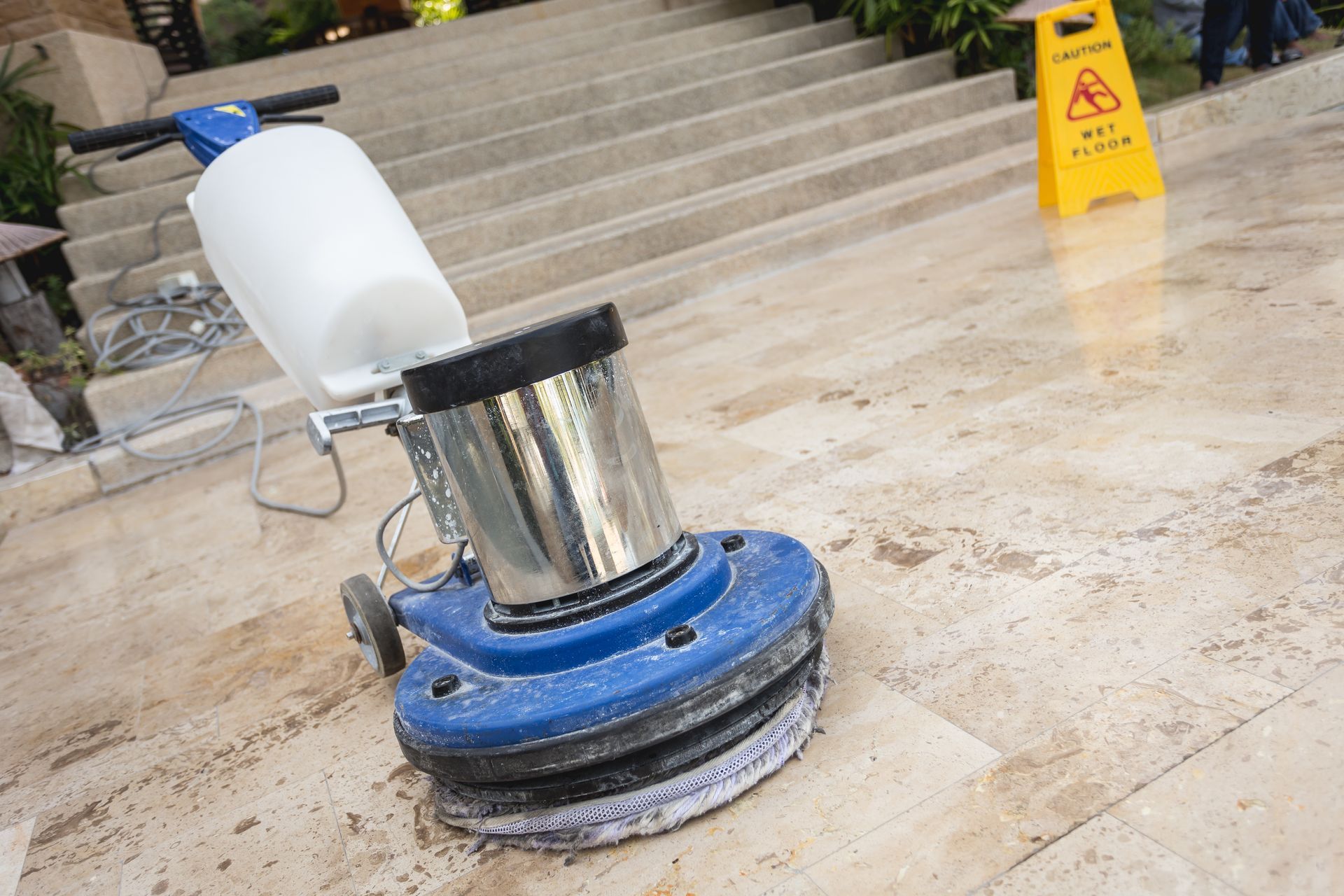Natural stone adds unmatched beauty and character to outdoor spaces, creating elegant patios, walkways, and landscapes that blend seamlessly with nature. Whether it's the rugged charm of slate, the warm tones of sandstone, or the sleek surface of granite, natural stone elevates the aesthetic appeal of gardens and outdoor living areas. However, exposed to the elements, these surfaces require proper cleaning and maintenance to preserve their beauty and durability. Here are essential tips and guidelines for caring for natural stone outdoors.
Understanding Your Stone
First and foremost, identify the type of natural stone you have in your outdoor space. Different stones have unique properties and maintenance needs. For instance, porous stones like limestone require more delicate care to avoid damage, while granite can withstand harsher cleaning methods. Knowing your stone is the first step to effective care.
Regular Cleaning
Basic Cleaning:
- Sweeping: Regularly sweep or blow leaves and debris off the stone to prevent staining and scratching.
- Washing: Rinse your stone surfaces with a hose to remove loose dirt. Use a mild detergent or stone cleaner diluted in water for deeper cleaning. Avoid acidic cleaners, including vinegar, which can etch certain types of stone.
Stain Removal:
- Act quickly on spills to prevent stains.
- Use a poultice for tough stains, which is a paste made from a cleaning agent mixed with a material like baking soda, applied to the stain, and left to sit for 24 to 48 hours under plastic wrap.
Preventing Damage
- Sealing: Apply a sealer designed for outdoor stone to protect against moisture, stains, and weather damage. The frequency of sealing depends on the stone type, the area's exposure to weather, and the sealer quality.
- Avoiding Harsh Chemicals: Never use bleach, ammonia, or other harsh chemicals for cleaning. They can damage the stone's surface and affect its integrity.
Tackling Moss, Mold, and Mildew
In damp or shaded areas, moss, mold, or mildew can develop on natural stone, making surfaces slippery and unsightly.
- Gentle Cleaning: Use a solution of one part hydrogen peroxide to five parts water, or a commercially available cleaner suitable for your type of stone.
- Soft Brushing: Scrub the affected area with a soft-bristle brush, then rinse thoroughly with water.
- Preventative Measures: Improve drainage and reduce moisture in prone areas. Consider using a fungicide or algaecide designed for use on natural stone, following the manufacturer's instructions closely.
Addressing Weather Exposure
Freeze-thaw cycles can cause cracks and splits in natural stone. To minimize damage:
- Ensure proper drainage from stone surfaces to prevent water pooling and freezing.
- Repair cracks or splits promptly to prevent water from entering and causing further damage.
Professional Care
Consider hiring a professional stone cleaning service for significant issues or an annual deep clean. They have the expertise and equipment to handle complex problems, such as deep-set stains or structural damage, without risking further harm to your stone.
Conclusion
Natural stone in outdoor spaces requires a dedicated approach to cleaning and maintenance. By understanding your stone's needs, performing regular cleaning, protecting it from damage, and addressing issues promptly, you can ensure your outdoor stone surfaces remain beautiful and functional for years to come. Regular care not only preserves the aesthetic appeal of your outdoor areas but also protects your investment in natural stone, ensuring that it continues to add value and beauty to your home.


